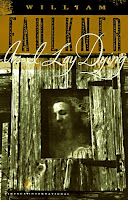Dawn Reader

from Open Door Coffee Co.; Hudson, OH; Oct. 26, 2016
Thursday, September 5, 2013
No Practical Knowledge
I have never been much good with practical matters. I come by it naturally--and through no failings of my own. My mother had no handywoman skills, and my dad, who grew up on a farm (leading you to think he was skilled in Old MacDonaldery), was dangerous with tools in his hand. He was missing the smallest finger from his left hand--a boyhood accident with an axe. Just saying ...
There's a famous family photograph that one of my brothers probably stole, a photograph that shows my father tugging on a rope that's attached to a tree next to our house in Hiram, Ohio--oh, about 1959 or 1960. He had decided to cut down the tree (it was too close--and insisted on growing more each year), had chopped away with his doughty middle son (me) taking turns. He'd had the foresight to attach the rope, realizing that there was a chance--perhaps even a good one--that the tree would fall toward the house.
It did.
The photograph shows him leaning back, pulling with all his farmboy strength, while the tree heads houseward. The photograph does not show that Dad won, the branches only grazing the house.
(And I wonder now: Who took that picture while Dad and I were slaving away? Who was standing there doing nothing?)
Nor does the photo show the evil that occurred only an hour earlier: It was a Saturday after a week of school. All three boys had rooms upstairs. And Dad walked right by Dave's and Dick's rooms to get to mine, where he roused me from a sleep very akin to death and told me to get dressed and meet him outside. Right now. One did not argue with my father. Nor did Number Two Son. Out I went. The rest appears above.
(I grew up, of course, knowing that Jesus was a carpenter--but I always thought that was kind of unfair. I mean, if he made a mistake (not that he could), it would be a simple thing for him to fix. And if he wasn't sure how to do something, Dad would know.)
In eighth grade we (the boys--no girls) had to take Industrial Arts with Mr. Lohr, who seemed to have only a mild interest in our progress. We had a couple of projects to complete (mine were somewhere beyond--far beyond--incompetent). I made a birdhouse that all birds in Portage County eschewed. And some kind of little wooden box for my mother, a box that mysteriously disappeared only days after I took it home, still sticky with the shellac I'd applied far too generously.
I did manage to learn the difference between a rip and a crosscut saw; I learned that a hammer can hurt your fingers. And a band saw is not to be messed with. I went nowhere near the table saw. (Even Mr. Lohr saw that as foolhardy.)
Oh, and we had an 8th grade Ohio history teacher--Mr. Wolfe--who continually sneered in class about college professors who had no "practical knowledge." I tried to feel some umbrage, but in my dad's case, Mr. Wolfe was kind of right.
Throughout high school and college there was really no call for me to use any of my "skills," but when I graduated from Hiram College in 1966, I rented my first (unfinished) apartment in Twinsburg, Ohio, where I had to ask the neighbor and some friends to "help" me do whatever needed doing. (The "help," of course, meant my friends worked; I watched.)
And then I got married in 1969. Joyce and I didn't know each other too well at the time (we'd met just five months earlier), so she did not discover my practical ineptness until it was too late. After she said "I will." But she found out soon enough. Her parents gave us a washer and dryer for a wedding present, and I was helpless and hopeless getting them hooked up. My colleague Jim Wright (who taught math) came over to show me what to do--while he was doing it. I promptly forgot. So when we moved again a couple of years later, I got on the phone with Good Old Jim, who, to be honest, was happy to help.
Fortunately, my son loved me before he realized his dad had no Practical Knowledge. By the time he realized it, I had already taught him carefully that the things I can do are, you know, just as important. Like typing. (I'm not sure he was ever too convinced. And I'm astonished that he has proven to be quite practical, doing all sorts of handyman stuff around his house, handyman stuff for which I have to write checks and take out mortgages.)
I know now that it's not going to get any better. I used to lie to myself--claiming (silently) that "one day" I would take a class or something. Well, the "one days" are in slim supply right now, so I'm going to go to my grave unlike Cash Bundren in As I Lay Dying, the carpenter son who built his mother's coffin right outside the window of the bedroom where she lay dying.
I taught that novel quite a few times. But I first read it back in the 1960s at Hiram College with Prof. Abe Ravitz, who assigned each of us a character to explain to the rest of the class.
You'll never guess whom he assigned to me ...
Subscribe to:
Post Comments (Atom)


No comments:
Post a Comment